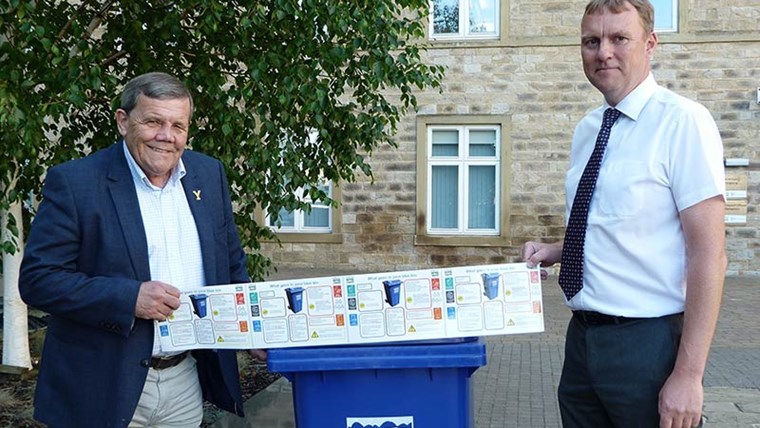- You are here:
- Home
- News Archive Folder
- September 2020
- Hundreds of tonnes of non-recyclable waste are found in Craven household recycling bins
Hundreds of tonnes of non-recyclable waste are found in Craven household recycling bins

Craven residents and businesses are being urged to put the correct items in their recycling bins to avoid contamination.
New figures reveal that 704 tonnes of non-recyclable waste have been found in the district’s bins over the last year.
On average, 10.8 per cent of all waste found in Craven’s recycling bins was not recyclable. In the worst month, February 2020, around 15 per cent of waste was contaminated.
The main contamination culprits are black bin bags, and clothing or other textiles.
Councillor Carl Lis, Craven District Council’s Lead Member for Greener Craven, said: “This week is Recycle Week and we’d like to thank Craven residents for continuing to recycle despite the challenges presented by the global Covid-19 pandemic.
“However, if the amount of contaminated waste becomes too high, this is not only bad for the environment, but it also costs the council - and the council taxpayer – money. This is why it’s important that we ensure the correct materials are placed in the bin.
“Please remember that the waste in blue recycling bins must be loose, not bagged, and we also ask residents to wash and squash items before placing them in the bin. Clothing and other textiles cannot be accepted.
“We understand that it can be difficult to remember which items can be recycled and we have sent out a number of communications to residents over the last couple of years reminding everyone. This information is also available on our website. If you are unsure, please do take a moment to check, and help us to get our contamination rates down.”
Residents are being reminded to check the information on their bin stickers and on the council’s website at www.cravendc.gov.uk/recycling to make sure they are putting the correct items in their blue recycling bins. A copy of the bin sticker can also be downloaded from the website.
There are a number of items that are not suitable for recycling. These include clothing and other textiles, black plastic of any kind, any bagged waste, any food waste, paint tins or wallpaper, toys, garden furniture, bin liners, cling film or plastic film, food wrappers, crisp packets or tubes, books, and cereal plastic inner bags.
Residents are also asked to remember to wash and squash their items, and are advised that bottle tops should be placed back on plastic bottles before placing in the bin.

